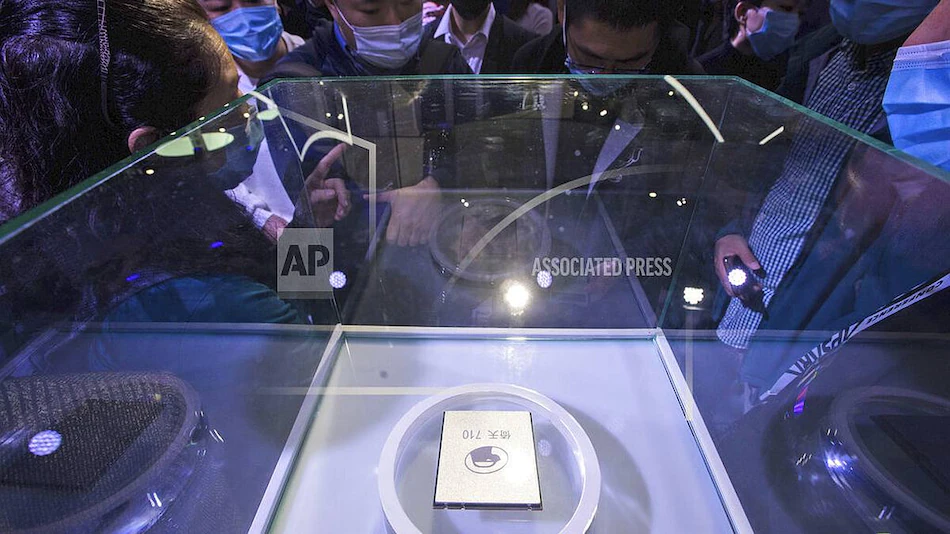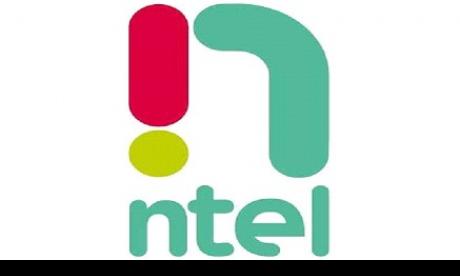China is Pushing Alibaba to Design Its Own Chips

China’s ruling Communist Party is pressuring Alibaba to enter the difficult and costly business of designing its own processor chips in order to help China become a self-sufficient “technology superpower” — a business unlike anything the world’s largest e-commerce company has done before.
T-Head, its 3-year-old chip unit, unveiled its third processor, the Yitian 710, for Alibaba’s cloud computing business in October. Alibaba says it has no plans to sell the chip to third parties for the time being.
Other rookie chip developers, such as Tencent, a games and social media giant, and smartphone brand Xiaomi, have pledged billions of dollars in support of official plans to develop computing, clean energy, and other technology that will help China’s wealth and global influence.
Processor chips are becoming increasingly important in products ranging from smartphones and automobiles to medical devices and home appliances. Shortages caused by the coronavirus pandemic are disrupting global manufacturing and adding to supply concerns.
Chips are a top priority in the ruling Communist Party’s marathon campaign to wean China off technology from the United States, Japan, and other suppliers seen as potential economic and strategic rivals. If it is successful, business and political leaders warn that it will stifle innovation, disrupt global trade, and make the world poorer.
“Self-sufficiency is the foundation of the Chinese nation,” President Xi Jinping said in a March speech. He urged China to become a “technology superpower” in order to ensure “national economic security.”
“We must strive to become the world’s primary scientific center and a hotbed of innovation,” Xi said.
Beijing may be chasing a costly failure. Despite massive government investments, businesspeople and analysts say chipmakers and other companies will struggle to compete if they cut ties with global suppliers of advanced components and technology — a goal that no other country is pursuing.
“It’s difficult to imagine any single country rebuilding all of that and having the best technology,” said Peter Hanbury, a Bain & Co. industry analyst.
Beijing’s campaign exacerbates tensions with Washington and Europe, which regard China as a strategic competitor and accuse it of stealing technology. They restrict access to tools that are required to improve its industries.
If the world were to decouple or split into markets with incompatible standards and products, parts made in the United States or Europe might not work in Chinese computers or automobiles. Smartphone manufacturers with a single dominant global operating system and two network standards may need to create variants for different markets. This could stifle development.
In September, UN Secretary-General Antonio Guterres told The Associated Press that Washington and Beijing must “avoid that the world becomes separated.”
The factories in China assemble the world’s smartphones and tablet computers, but they require components from the United States, Europe, Japan, Taiwan, and South Korea. Chips surpassed crude oil as China’s largest import last year, totaling more than $300 billion.
Official concern grew after Huawei Technologies Ltd., China’s first global tech brand, was denied access to U.S. chips and other technology in 2018 due to White House sanctions.
The telecom equipment maker’s ambition to be a leader in next-generation smartphones was harmed as a result. American officials claim Huawei poses a security risk and may aid Chinese spying, which the company denies.
According to industry analysts, Huawei and some Chinese rivals are on the verge of matching Intel, Qualcomm, South Korea’s Samsung Electronics, and Britain’s Arm in the ability to design “bleeding edge” logic chips for smartphones.
However, foundries such as the state-owned SMIC in Shanghai are up to a decade behind industry leaders such as TSMC, or Taiwan Semiconductor Manufacturing Corporation, which manufactures chips for Apple and other global brands.
Even companies that can design chips, such as Alibaba, will almost certainly require Taiwanese or other foreign foundries to manufacture them. Alibaba’s Yitian 710 necessitates precision that no Chinese foundry can provide. The company did not specify which foreign producer it would use.
“My country still has a significant gap in chip technology,” said Zero Power Intelligence Group analyst Liu Chuntian.
China accounts for 23% of global chip production capacity but only 7.6% of total sales.
Packing millions of transistors onto a fingernail-sized sliver of silicon necessitates approximately 1,500 steps, microscopic precision, and arcane technologies owned by a small number of US, European, Japanese, and other suppliers.
They include California’s KLA Corporation for ultra-precise measurement and Japan’s TEL for machines that apply coatings a few molecules thick. Many are protected by bans on “dual-use” technologies that can be used in weapons.
According to a report released this year by the Semiconductor Industry Association, China “lags significantly” in tools, materials, and production technology.
Washington and Europe, citing security concerns, restrict access to the most advanced tools required by Chinese chipmakers to compete with global leaders in precision and efficiency.
Without them, China will fall further behind, according to Bain’s Hanbury.
“The TSMC horse is sprinting away, and the Chinese horse has come to a halt,” he explained. “They are unable to progress.”
Last year, Washington increased pressure on Huawei by prohibiting global foundries from using American technology to produce its chips. Chips from US vendors can be sold to the company, but only for next-generation “5G” smartphones.
The European Union, for its part, has stated that it will review foreign investments following complaints that China was eroding Europe’s technological lead by purchasing important assets such as German robot maker Kuka.
The architecture of Alibaba’s Yitian 710 is based on that of Britain’s Arm, highlighting China’s ongoing need for foreign know-how. Alibaba stated that it will continue to collaborate closely with long-time foreign suppliers Intel, Arm, Nvidia, and Advanced Micro Devices.
T-first Head’s chip for artificial intelligence, the Hanguang 800, was announced in 2019. Its second model, the XuanTie 910, is designed for self-driving cars and other applications.
Tencent, the company behind the WeChat messaging app, announced its first three chips for artificial intelligence, cloud computing, and video in November.
Beijing says it will invest $150 billion in chip development from 2014 to 2030, but that is only a fraction of what global leaders invest. TSMC intends to invest $100 billion (roughly Rs. 7,49,278 crore) in research and manufacturing over the next three years.
China is attempting to purchase experience by hiring engineers from TSMC and other Taiwanese manufacturers. Taiwan, which Beijing claims as part of its territory and has threatened to attack, has retaliated by restricting job postings.
Beijing encourages smartphone and other manufacturers to use Chinese suppliers, even if they are more expensive, but officials deny that China wishes to withdraw from global industries.
“We will never go back in time by attempting to decouple,” Xi said in a video link speech to a meeting of Asia-Pacific leaders in Malaysia in November.
The most recent disagreement is over photolithography, which uses ultraviolet light to etch circuits into silicon on a scale measured in nanometers, or billionths of a meter.
ASML, based in the Netherlands, is the market leader, with machines capable of etching transistors only 5 nanometers apart. That would cram 2 million people into a one-centimeter-wide space.
At 14 nanometers, China’s SMIC is roughly one-third as precise. TSMC, a Taiwanese semiconductor manufacturer, is planning to increase its precision to 2 nanometers.
SMIC wishes to upgrade by purchasing the most recent machine from ASML, but the Dutch government has yet to agree.
“We will wait for their decision,” said an ASML spokeswoman, Monica Mols, in an email.







